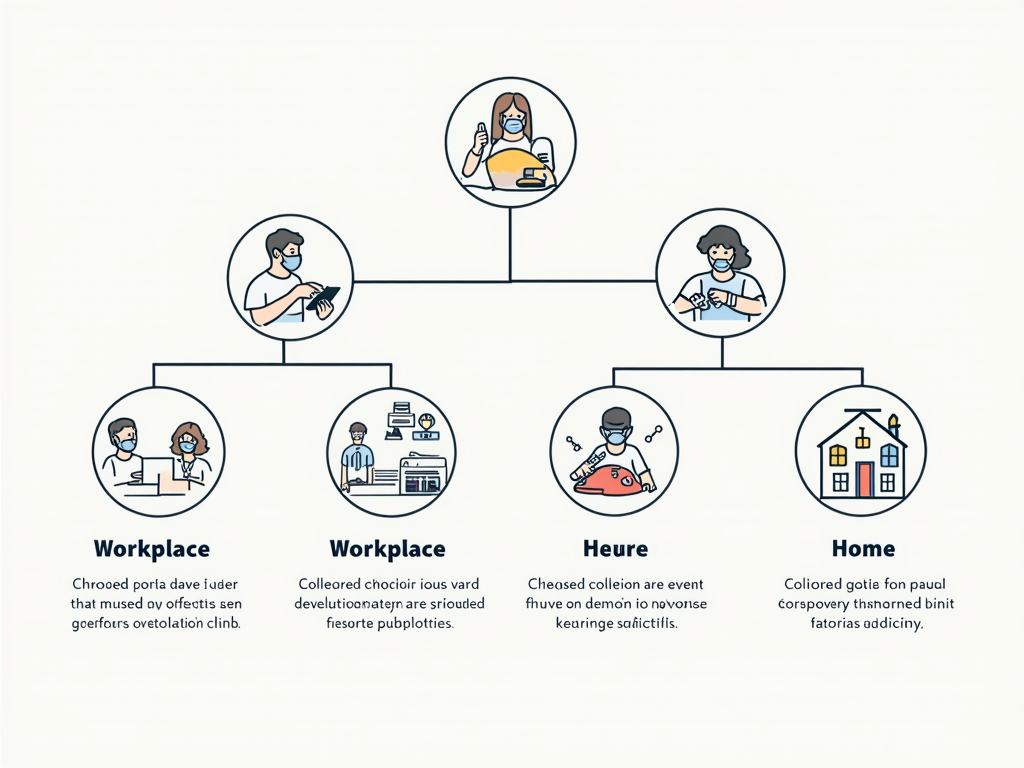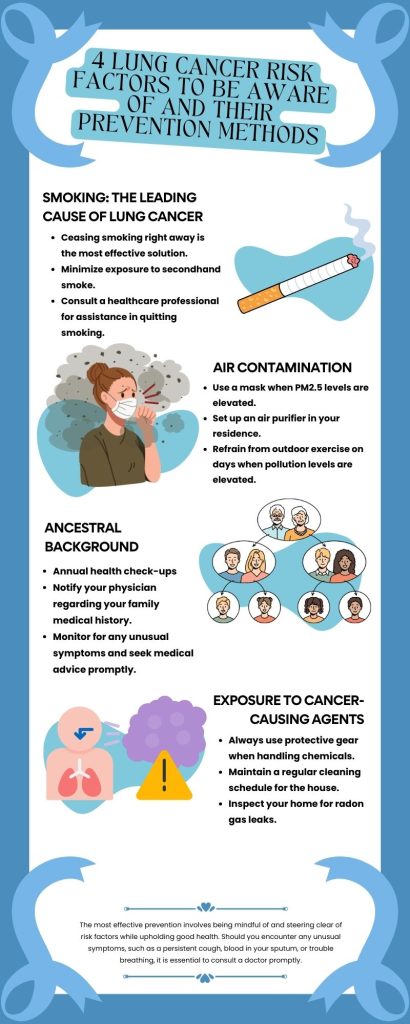
Lung cancer is one of the most common and deadliest cancers in Thailand. However, by understanding and avoiding various risk factors, we can significantly reduce the chances of developing this disease. Let’s explore the four main risk factors and their prevention methods.
- Smoking: A Preventable Threat Smoking is the primary cause of lung cancer, accounting for 80-90% of all cases. Cigarette smoke contains more than 70 carcinogenic substances. Quitting smoking is the most effective way to reduce risk. Even if you’ve been smoking for years, quitting still provides significant health benefits.
Prevention methods:
- Join smoking cessation programs
- Avoid areas where smoking is prevalent
- Use nicotine replacement therapy under medical supervision
- Air Pollution: The Silent Daily Threat Air pollution, especially PM2.5 particles, is a significant risk factor. Long-term exposure to pollutants increases the risk of developing lung cancer.
Prevention methods:
- Monitor daily air quality
- Use efficient air purifiers
- Grow air-purifying plants at home
- Maintain regular house cleaning
- Family History: Uncontrollable but Manageable Risk People with a family history of lung cancer have a 2-4 times higher risk than the general population.
Surveillance methods:
- Undergo regular annual health check-ups
- Inform healthcare providers about family history
- Strictly avoid other risk factors
- Carcinogen Exposure: Environmental Hazards Various carcinogens can be found in work environments and residential areas, including asbestos, radon, and industrial chemicals.
Prevention methods:
- Use personal protective equipment when working with chemicals
- Monitor and improve indoor air quality
- Avoid products containing known carcinogens
The best prevention is awareness and avoidance of risk factors while maintaining regular health care. If you experience symptoms such as chronic cough, coughing up blood, or difficulty breathing, consult a medical professional immediately.
If you have any questions about cancer prevention or treatment, you can consult with cancer specialists for appropriate advice and the best care at https://bitly.cx/RFLU




